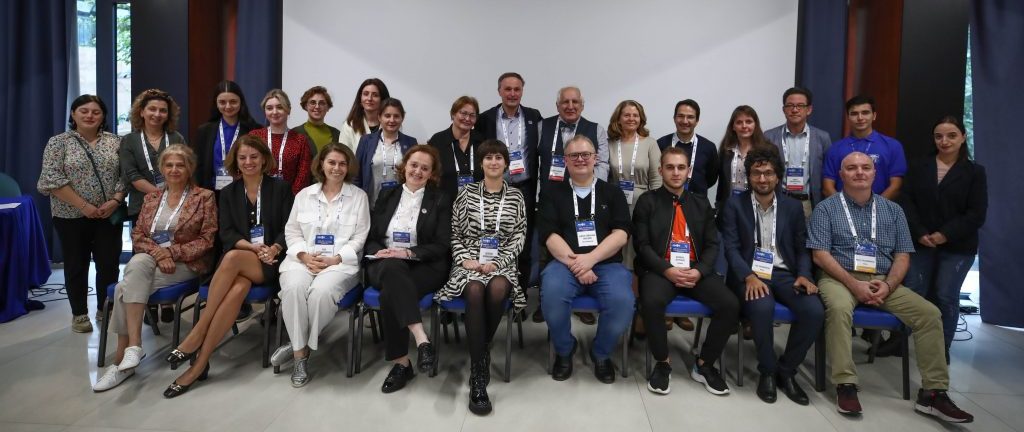AMSE Newsletter – 2022 – No. 10

Dear friends and colleagues, dear members of AMSE,
the AMSE 2022 conference “The Medical School of the Future: Ensuring Quality” was a great success. The conference took place in Batumi, Georgia, from October 6th – 9th 2022 and attracted more than 125 participants from 19 countries.
In conjunction with the conference, the AMSE Executive Committee adopted and released the following declaration.
AMSE 2022
Conference declaration
Education in all health professions requires rethinking; our current education system does not fit the needs of our students and trainees anymore. This has become apparent in a number of situations, including the COVID-19 pandemic, which forced medical universities to develop new educational resources, learning approaches and assessment formats. With higher or lower success, universities initiated the formation and development process of the so called “digital ecosystems”. Examples of their efficiency (including those presented during this conference) give a basis for cautious optimism.
The conference considers that agreement and readiness among academic society members (teachers, students) remain in the core for appropriate realization of new communication opportunities, including on the role and importance of digital resources. The main requirement of programs to such resources is that they allow learners to engage in solving authentic problems encountered in the workplace.
The new reality requires a revision of the competency frameworks on education in all health professions for program leaders, managers, teachers and tutors.
During the last decade, most rapid scientific and technical progress has been taking place including all health professions. We need a shifting away from „a focus on medical knowledge“ to “readiness for clinical practice”. Among others, our graduates need competencies in self-assessment, self-responsibility, research and for continuing professional development. This will be inextricably linked with professional ethics and academic integrity.
Quality assurance should place emphasis whether the trainees (on any level of medical education and research) have actually developed the prespecified competencies and this “quality indicator” is above any other ones. Quality assurance requires a systemic approach, the required outcomes determine the policies, management procedures, resources and systems that are needed and how these must interact with each other and cooperate.
Furthermore, AMSE General Assembly emphasizes that quality is a moving target. Acceptance criteria and quality expectations are always changing and there are always new quality challenges. The medical school of the future needs to be “reflective institution” which continually improves its practices and where quality assurance is central to long-term policy formulation and the deployment of human and other resources.
From Berlin,
Harm Peters
Prof. Harm Peters, MD, MHPE
AMSE President
Mühlenstrasse 8a
D-14167 Berlin, Germany
Email: president@amse-med.eu

